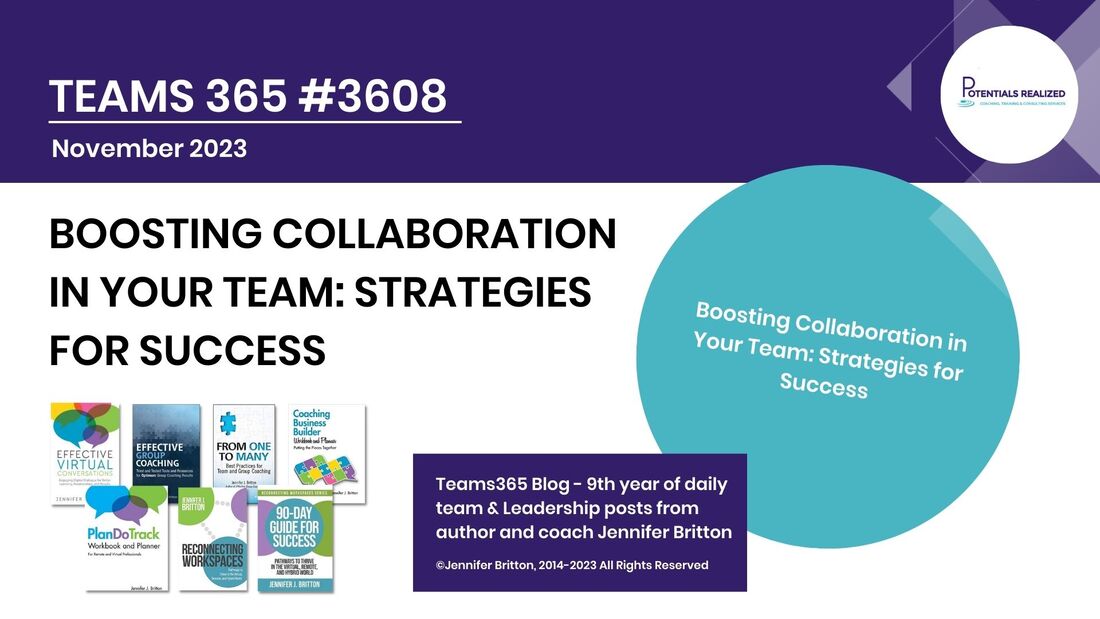1. Clearly Define Roles and Responsibilities:
Start by defining each team member's role and responsibilities. When everyone knows what they are accountable for, it reduces confusion and prevents tasks from falling through the cracks.
2. Create a Shared Vision:
Craft a shared vision for your team's goals and objectives. When everyone understands and aligns with the same vision, it becomes easier to work toward a common purpose.
3. Open Communication Channels:
Establish open and accessible communication channels within your team. Whether it's through regular meetings, collaboration software, or messaging apps, ensure that team members can easily share information and ideas.
4. Encourage Active Listening:
Active listening is crucial for effective collaboration. Encourage team members to listen attentively to one another, ask clarifying questions, and provide constructive feedback.
5. Celebrate Diversity:
Embrace the diverse skills, experiences, and backgrounds of your team members. Diverse perspectives can lead to creative solutions and innovative ideas.
6. Establish Clear Goals:
Set clear, specific, and achievable goals for your team. When everyone understands what they are working toward, collaboration becomes more purposeful.
7. Foster Trust:
Trust is the foundation of collaboration. Team members need to trust each other's skills and intentions. Be transparent, reliable, and supportive to build trust within your team.
8. Collaboration Tools:
Invest in collaboration tools and software that facilitate teamwork. Tools like project management platforms, shared documents, and virtual whiteboards can streamline collaboration.
9. Regular Team Building:
Plan regular team-building activities or events. These activities help team members bond, build trust, and improve communication.
10. Encourage Knowledge Sharing:
Promote a culture of knowledge sharing. Encourage team members to share their expertise and insights with one another. This not only enhances collaboration but also promotes continuous learning.
11. Provide Training and Development:
Invest in training and development programs to enhance your team's skills. Well-trained team members are more confident and capable collaborators.
12. Recognize and Reward Collaboration:
Acknowledge and reward collaboration. Recognize the efforts and achievements of team members who actively contribute to a collaborative environment.
13. Resolve Conflicts Constructively:
Conflicts are inevitable, but they can be resolved constructively. Teach your team conflict resolution strategies that focus on finding mutually beneficial solutions.
14. Lead by Example:
As a leader, lead by example. Demonstrate collaboration in your own actions and interactions. Your behavior sets the tone for the team.
15. Solicit Feedback:
Ask your team for feedback on collaboration efforts. What is working, and what needs improvement? Use this feedback to refine your collaboration strategies.
Boosting collaboration in your team requires a concerted effort, but the benefits are well worth it. When team members work together seamlessly, your team can achieve greater productivity, innovation, and overall success.
Potentials Realized |Reconnecting Workspaces | Group Coaching Essentials
Team and Leadership Development | Coaching | Retreats
Follow us on Instagram @ReconnectingWorkspaces
Follow us on TikTok at https://www.tiktok.com/@groupcoach
Phone: (416)996-8326
Reach out to book a conversation regarding how your team can benefit from the Everything DiSC. Send an email to Jennifer OR book a call
Check out my TEDx talk on Coaching Teams Through Chaos and the Six Factors™
Looking to bring your workplaces back together, whether you are remote, hybrid, or face-to-face? Pick up a copy of my new book, Reconnecting Workspaces, at Amazon.

 RSS Feed
RSS Feed





